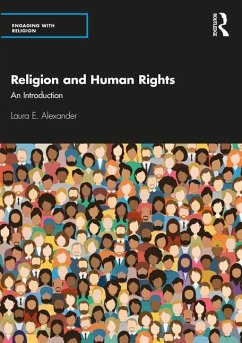This book highlights perspectives from religious traditions worldwide, in conversation with other communities who promote, critique, or question the idea of human rights. It shows how human rights can provide a platform for dialogue among groups of people from diverse backgrounds who seek to address pressing issues of human well-being.
In each chapter, readers will be introduced to religious and human rights perspectives on specific global issues. Intersecting with these issues, the work examines history and philosophy of human rights, for a generally accessible overview of human rights theory, foundations, and critique. Specific case studies woven through the book will also help both students and advocates - whether they are part of religious communities or not - engage more deeply with particular areas of concern.
This volume is a useful resource for undergraduate students who are learning about the relationship between religion and human rights in a classroomfor the first time, as well as upper-level and graduate students looking for a broad basis of knowledge and a starting point for digging deeper into specific areas of scholarship.
In each chapter, readers will be introduced to religious and human rights perspectives on specific global issues. Intersecting with these issues, the work examines history and philosophy of human rights, for a generally accessible overview of human rights theory, foundations, and critique. Specific case studies woven through the book will also help both students and advocates - whether they are part of religious communities or not - engage more deeply with particular areas of concern.
This volume is a useful resource for undergraduate students who are learning about the relationship between religion and human rights in a classroomfor the first time, as well as upper-level and graduate students looking for a broad basis of knowledge and a starting point for digging deeper into specific areas of scholarship.

